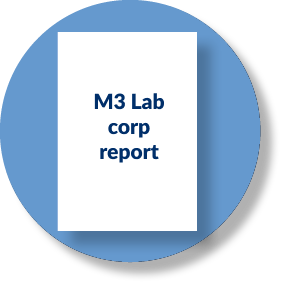
Scores. Numbers. And easy-to-use.
Designed for primary and specialty care doctors, M3 Checklist fits seamlessly into
existing patient EHRs and provides easy to understand results.
“See symptoms like a psychiatrist does”
Gerald Hurowitz, MD explains how a psychiatrist’s approach translates into
an efficient, time saving and comprehensive tool for primary care.
Easy as ordering a lab testTypical mental health assessments are hugely Clinicians can order the M3 Checklist with a secure, The process improves engagement, saves clinic time M3 is the world’s leading online mental health platform, enabling |
 |
 |
Cybersecurity, Data Protection and PrivacyWe are committed to improving your mental health and To ensure the confidentiality and security of user data, our The M3 platform has a documented Information Security Third-party auditors conduct these assessments as part of our |
 |
The 3-5 minute assessmentPatients can take a 3-5 minute assessment during |
Receiving resultsEasy to read reports allow for longitudinal tracking Physicians receive risk assessment scores, symptom |
 |
M3 fits right into your current workflow

Start the conversation earlier
Reviewing results within a practice setting, physicians and patients
can have personal, informed conversations using measurement-based
outcomes.
An M3 report provides high level insight about a patient’s risk for mental
health conditions. Reports include patient responses, prompting discussion
about specific, real problems, rather than only giving a diagnostic view.
While other screening tools assess symptoms of a single mental health
condition, a clinician would need to spend much more time using multiple
assessments to reach results equivalent to a single M3 Checklist.
Keep monitoring progress
Physicians can use the M3 Checklist to monitor progress and, if necessary,
discuss alternatives to focus on specific areas. Providing continuous care
helps patients and clinicians work together to achieve better outcomes.